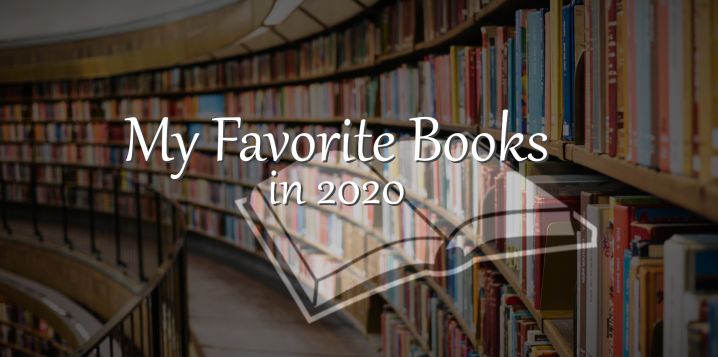

I found a lot of time to read in 2020 (not surprising, he?) and here are the five books I enjoyed most:
Hans Rosling: Factfulness
We’re irrational pessimists! Driven by emotion rather than data, we consistently perceive the state of the world as worse than it is, and underestimate how fast and consistently things improve. Subtitled “Ten Reasons We’re Wrong About the World - and Why Things Are Better Than You Think”, this book helped me get a better understanding of global health, population growth, economical perspectives, and the misconception of developing countries.
For a quick impression, I can also recommend his excellent TED talk “The Magic Washing Machine”, where he illustrates the impact of (technological) progress with a childhood memory.
My mother explained the magic with this washing machine the very, very first day. She said, ‘Now Hans, we have loaded the laundry. The machine will make the work. And now we can go to the library.’ (from the video)
More info on the book on goodreads / amazon
James Clear: Atomic Habits
Covering an admittedly stale topic (habit formation for personal growth), James Clear’s book stands out with concise and conclusive writing. Full of actionable advice on how to implement good habits and avoid bad habits, the book captivated me from the get-go with the author’s compelling praise of systems over goals.
We think we need to change our results, but the results are not the problem. What we really need to change are the systems that cause those results. (from the book)
More info on the book on goodreads / amazon / video review by Ali Abdaal
Sarah Frier: No Filter - The Inside Story of Instagram
When Facebook bought Instagram for the surreal price of $1 billion in 2012, the start-up had 13 employees (!) and was shaped by co-founder Kevin Systrom’s passion for curated and artistic experiences. After the acquisition, Instagram subsequently succumbed to Facebook’s business logic, e.g. by implementing ads, introducing the algorithm-driven feed, or copying Snapchat’s “Stories” feature (remember Snapchat?), finally evolving into a cornerstone of Facebook’s empire. Following Instagram’s history, Sarah Frier’s book gives an excellent insight into the various competing forces that shape social media (and broadly, technology) today.
Between that [Facebook’s acquisition of WhatsApp] and the Snapchat pursuit, there were suddenly no more doubts about whether Instagram was worth $1 billion to Facebook. Instead, Systrom was getting constant questions - from the media, from his peers in the industry, from everyone - about whether he’d sold too soon. (from the book)
More info on the book on goodreads / amazon / review by Financial Times
Jerry Seinfeld: Is This Anything?
I (re-) discovered Jerry Seinfeld through his excellent Netflix special “Jerry before Seinfeld”. This book collects his best jokes of five decades, framed by a few biographical notes, and it’s both interesting and genuinely funny. 👍
I saw a study that said, the number one fear of the average person is public speaking. Number two is death. Death is number two! How in the world is that? That means to most people, if you have to go to a funeral, you would rather be in the casket than doing the eulogy. (from the book)
More info on the book on goodreads / amazon
Claudia Gray - Master & Apprentice
There’s no denying: Star Wars books are a guilty pleasure of mine. This one follows the young Obi-Wan Kenobi (everone’s favorite Jedi, getting a Disney+ series!) and his master Qui-Gon Jinn. While the plot is predictable as ever, the dynamics between master and apprentice is what carries this book. I hope to get more content on Qui-Gon Jinn, realizing he may be the most quintessential Jedi in the whole saga.
Qui-Gon Jinn or Seneca, whose quote is it? 😉
Always remember: Your focus determines your reality.
More info on the book on goodreads / amazon
Happy reading! 👋
Sebastian
Image sources:
- Stockholm Library from Susan Yin (unsplash)
- book clipart by wikimedia commons




